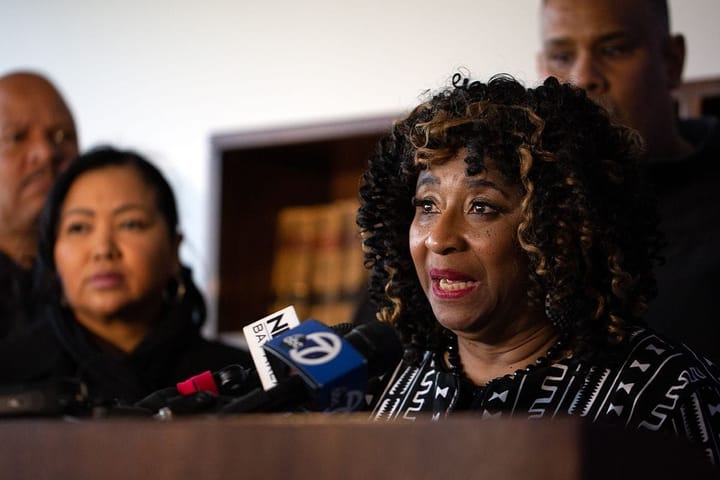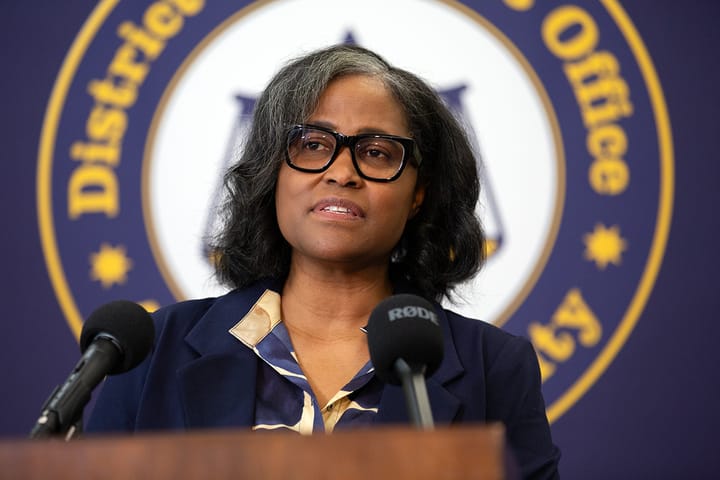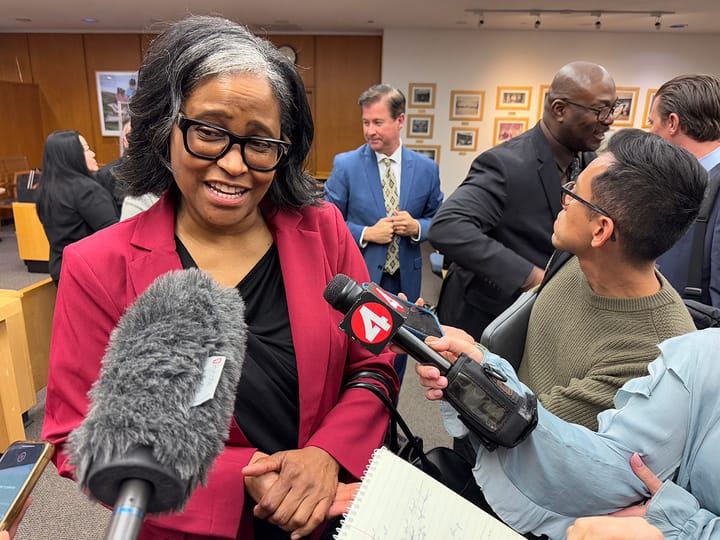Years after Oakland killing, Dana Rivers murder trial nears an end
Charlotte Reed, Patricia Wright and Benny Wright were killed at their home Nov. 11, 2016. Dana Rivers walked outside soon after police arrived.
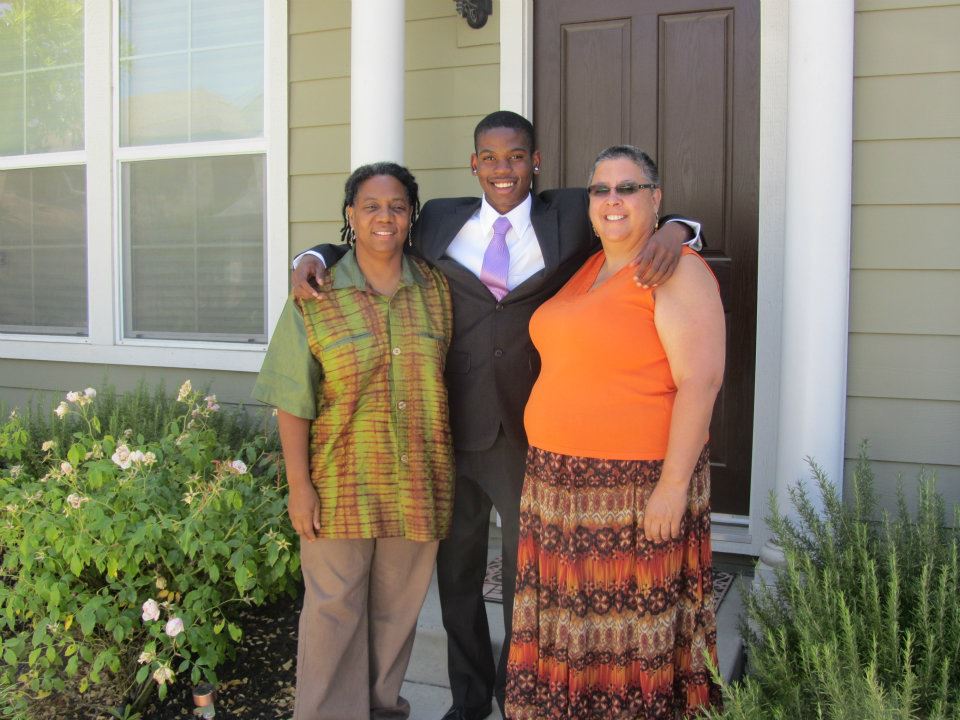
Six years ago, Charlotte Reed, Patricia Wright and their 19-year-old son Benny Wright were killed at their East Oakland home near 98th Avenue.
The women had been shot and stabbed repeatedly. The teenager, who had recently graduated from Berkeley High School, had been shot in the torso. He made it outside, shirtless and in pajama pants, but collapsed unresponsive in the street outside their home in the 9400 block of Dunbar Drive.
A neighbor heard gunfire and called police. Minutes after officers arrived, Dana Rivers walked outside.
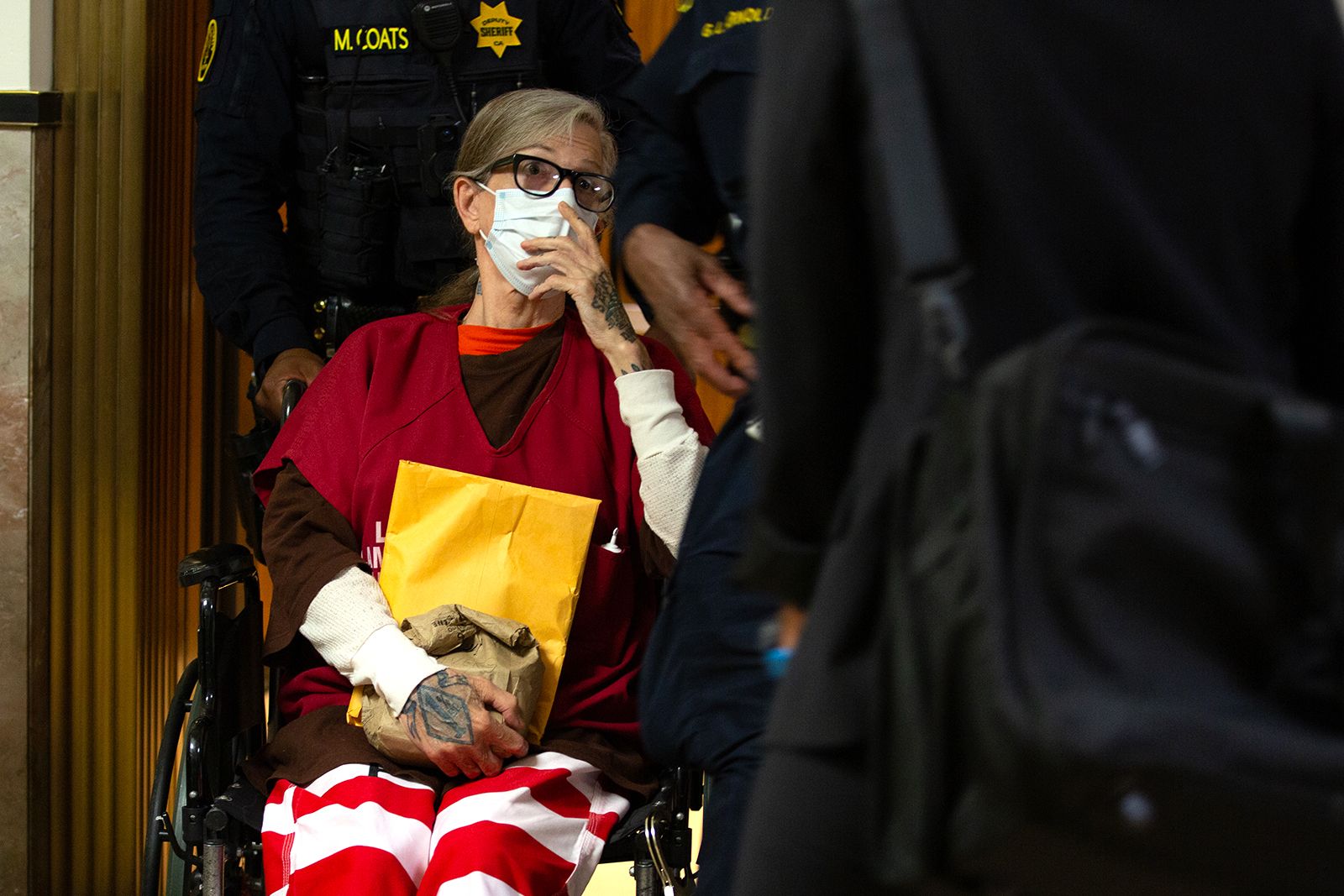
The San Jose resident, who was then 61 years old, was "covered in wet blood" and reeked of gasoline, according to court papers. A fire was burning in the garage, but firefighters extinguished it before it spread.
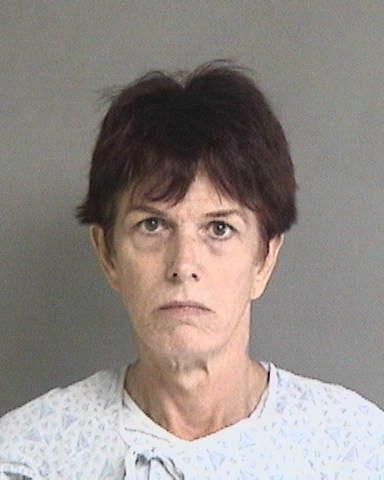
Dana Rivers. Alameda County Sheriff's Office
Rivers was later charged with the Nov. 11, 2016, murders of Reed, Benny Wright and Patricia Wright, who had worked for the Berkeley Unified School District as a deaf interpreter and a teacher for nearly a decade, as this reporter previously wrote on Berkeleyside.
The case had first been set for trial in 2019, but it was ultimately put off until this year, according to court papers reviewed by The Berkeley Scanner.
Rivers, who is now 67, initially entered a not-guilty plea, but later amended her plea to not guilty by reason of insanity.
The trial finally began in October with jury selection over several days and opening statements Oct. 31 by prosecutor Abigail Mulvihill, of the Alameda County district attorney's office, and defense attorney Melissa Adams, of Rien, Adams & Cox LLP.
Adams has said she will likely be advancing theories of self-defense, defense of others and imperfect self-defense, according to court papers.
Both women were part of The Deviants motorcycle club
In an Oct. 17 trial brief, Mulvihill wrote that Reed and Rivers had met at the Veterans Affairs Center in Menlo Park, where they were both getting services in 2016.
The prior year, Dana Rivers had joined a small all-female motorcycle club called The Deviants. Club members rode Harleys and had ties to the Hells Angels, according to court testimony.
Rivers had been an "enforcer" for The Deviants, Mulvihill wrote. As a club member, she had gone by the name "Edge" and covered her body in tattoos.
In February 2016, Charlotte Reed started spending time with the club, too. By the summer, however, she decided to leave because it "became too political for her," according to court papers.
Reed began to "experience threats" after she left the club: "There was backlash from the club for her departure," according to the trial brief. The Deviants wanted Reed to return its club patches — which signify membership — and a friend of Reed's recalled seeing Rivers at the Menlo Park VA "just sitting and staring at Ms. Reed."
Reed was a gun owner, Mulvihill wrote, and the "threats became so concerning" that she "began keeping her gun accessible to her within the home," including on her nightstand.
Sometime after the rift with the club, however, text messages showed Rivers "attempting to re-gain Ms. Reed's trust," according to the trial brief.
Reed's daughter told police she became worried that Rivers "wanted to hurt her mother," Mulvihill wrote.
The killings happened on Veterans Day 2016
In the hours before the killings, Reed picked up Rivers from BART and took her back to Dunbar Drive to work on a "mechanical project." Reed, who was 55 years old, had recently bought an RV and was working to fix it up, according to the trial brief.
Rivers texted her wife that it would be a "late night," adding: "Probably home tomorrow," according to the trial brief.
Cellphone records placed Rivers in the area of the Dunbar Drive home until the time of the killings, Mulvihill wrote.
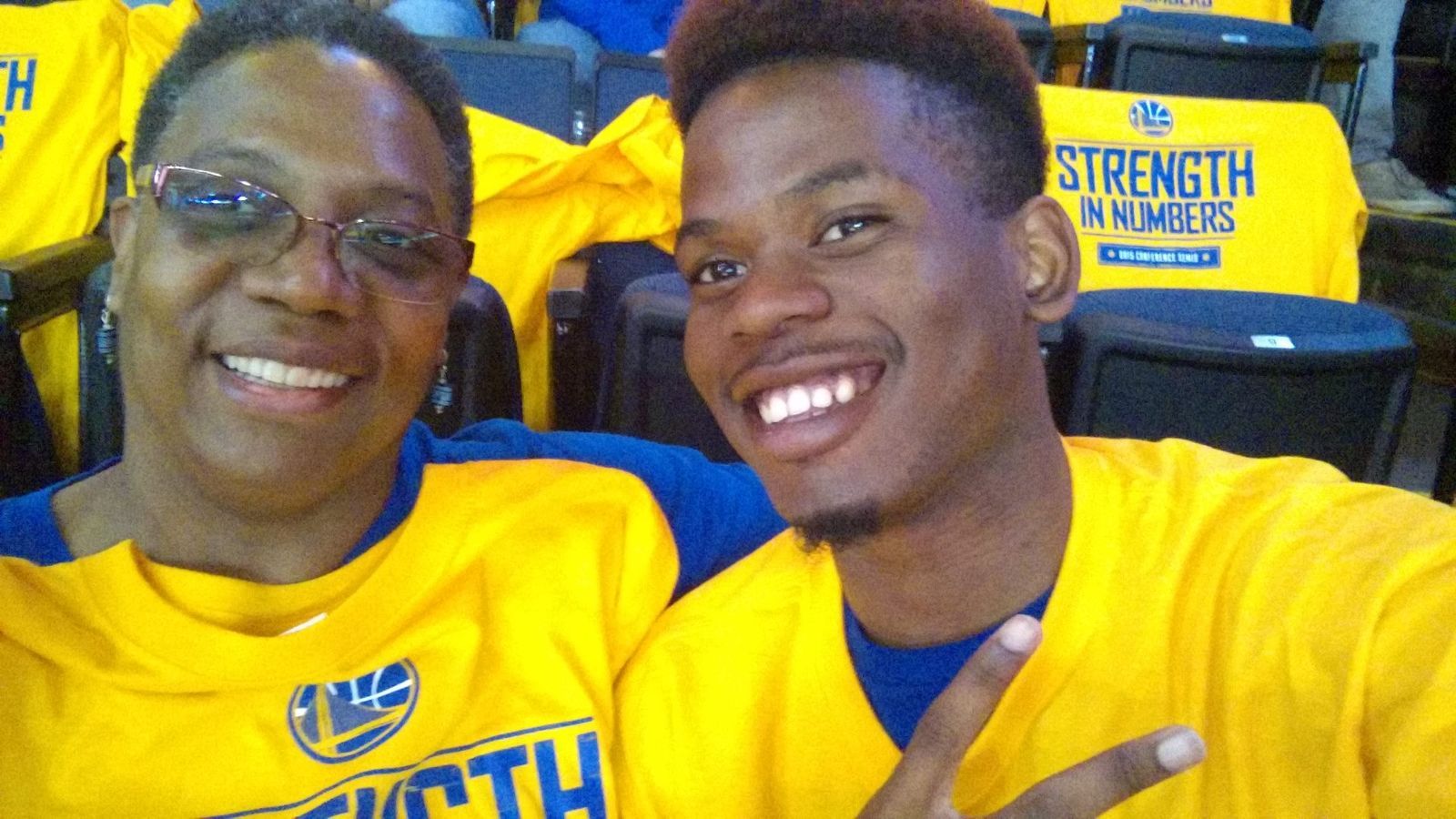
A neighbor, who took the stand first, according to court records reviewed by The Scanner, called police at 12:21 a.m. after hearing several gunshots and seeing Benny Wright — whom he did not recognize — stumble into the street and fall to the ground.
An Oakland police officer, who also testified in the trial, arrived at 12:24 a.m. to find Wright unconscious and bleeding.
The teenager had been adopted from West Africa and was living with his parents on Dunbar Drive at the time of the killings. He had been part of the Academy of Medicine and Public Service program at BHS and dreamt of becoming a nurse or a hairdresser, this reporter wrote on Berkeleyside in 2016.
A black Harley-Davidson motorcycle that belonged to Reed was parked outside on the sidewalk, which was unusual, according to the trial brief. Its keys were in the ignition.
One minute after police arrived, the officer heard a loud noise from inside the garage at the family's home.
Dana Rivers to police: "I know I'm in trouble"
About 30 seconds after hearing the noise, Mulvihill wrote, Rivers walked out of the front door. She was wearing a black motorcycle helmet, visor up, a black shirt, blue jeans and black boots. She was also wearing a black leather vest that the prosecution has asserted belonged to Reed.
Rivers also had on blue rubber gloves, according to the trial brief. They were torn near her index finger.
One of the officers told Rivers to put her hands up and asked her what was going on, according to the trial brief.
Rivers said she had come to get her friend's motorcycle because "it had a gas leak, I just told her I'm leaving. Just shut the door. Going to bed. That's all that happened."
The police told Rivers to get on the ground. She did, then "spontaneously stated, 'There's a fire inside.'" She also told police two people were inside, and that they were dead, according to the trial brief.
When officers searched Rivers, they found a bloody screwdriver, a knife, brass knuckles, bullets, pepper spray and Benny Wright's iPod, according to the trial brief.
Rivers was covered in gasoline, according to the brief.
"I'm not exactly sure what's going on here, but I know I'm in trouble," Rivers told the officers, according to the trial brief. She also said she was a veteran and needed mental health help.
OPD called the fire department, which put out the garage fire. Investigators later found a bloody lighter in the yard.
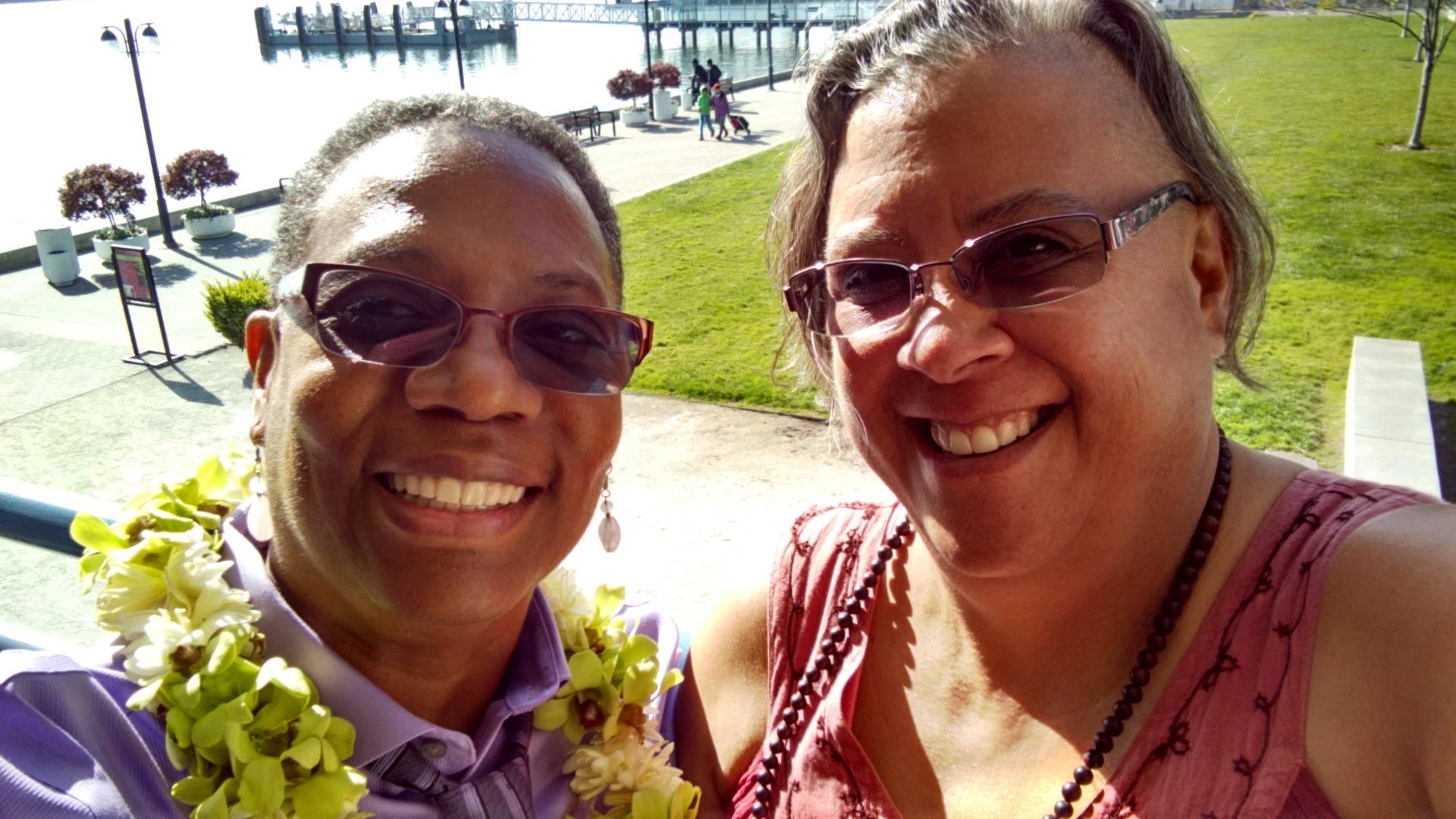
Inside the home, police found Reed dead in bed, covered in blood. A bloody revolver was nearby. It had five expended casings in the cylinder.
Reed had been shot twice and stabbed 40 times. Twenty-eight of the stab wounds were to the face, head and neck area. Another 12 were to her chest and torso.
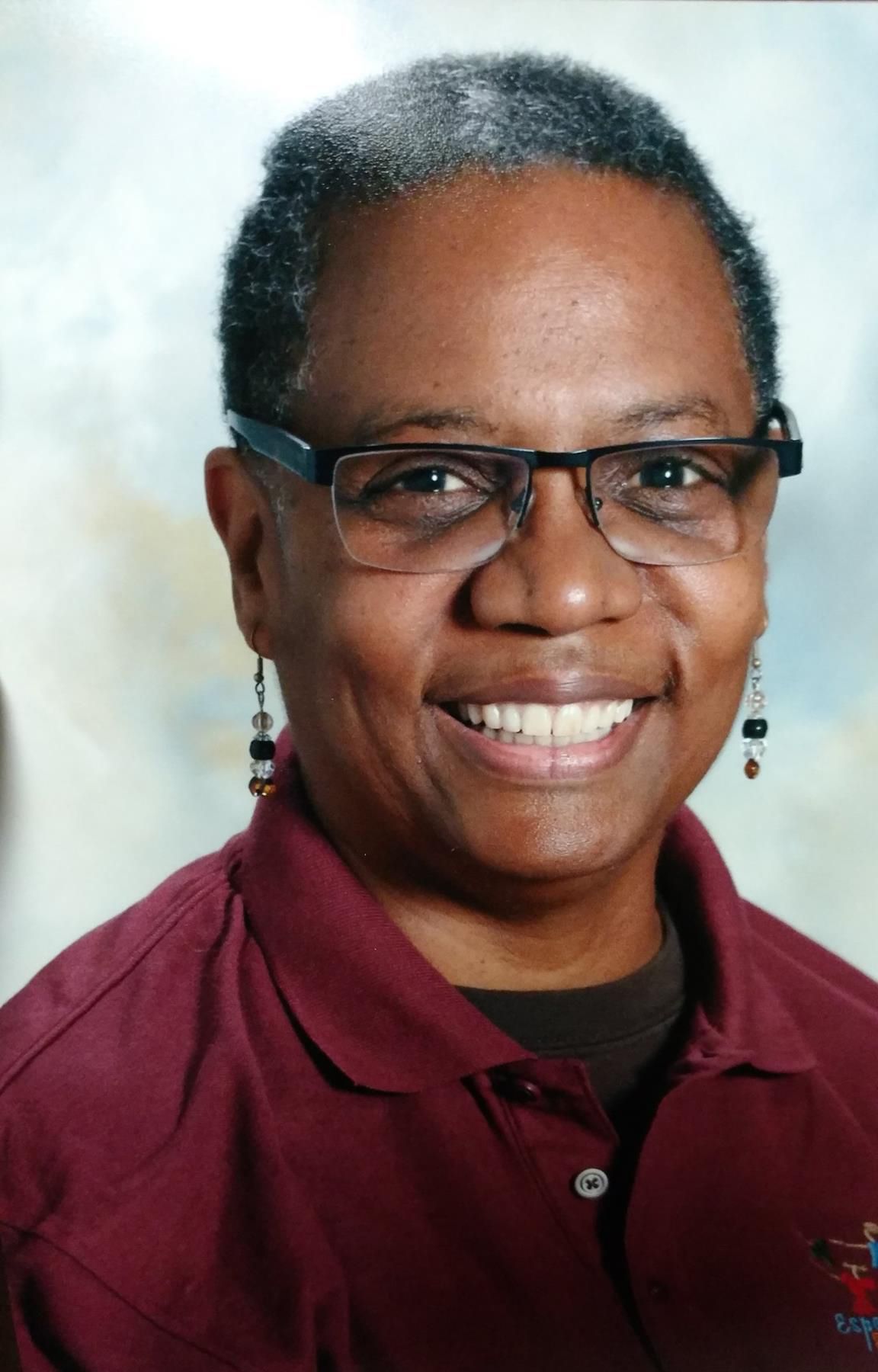
Patricia Wright. OUSD
Wright's body was on the floor near Reed's feet. The 57-year-old had been shot in the back and left breast.
She had been stabbed in the neck and shoulder.
Police found the family's two dogs in the home unharmed.
When police searched the Harley, they found blood on the bike.
In its saddlebags, they found a bloody knife, a large bag of marijuana, two laptops, two cellphones and a small backpack, which contained two loaded magazines, blue latex gloves, a BART card and other items, according to the trial brief.
Just inside the home's front door, police found a Colt 1911 handgun with a suppressor on it, according to the trial brief. They later determined that the magazines from the backpack fit the Colt 1911.
The gun, which had a number of after-market modifications, bore a striking resemblance to a tattoo on one of Rivers' legs, according to court testimony and court papers.
"Brutally Honest, Fiercely Loyal"
The subject of Rivers' tattoos came up repeatedly during the murder trial.
At one point, her defense attorney had asked the judge to keep them out of the case. When that effort failed, she used heavy makeup to cover her client's tattoos in court.
According to the trial brief, Rivers has multiple tattoos that reference The Deviants, including those that say "1%er" and "81," which relate to the Hells Angels.
Tattoos on her arms read "Brutally Honest, Fiercely Loyal," and "VA Certified. 5150. Batshit Crazy," according to the trial brief.
Next to the gun tattoo on Rivers' leg, Mulvihill wrote, a message reads, "Do not lie to me, fucker." Empty rounds are scattered beneath the firearm.
On Thursday morning, defense attorney Adams put a tattoo expert on the stand who said none of the tattoos necessarily meant anything significant because anyone who can afford body art can put whatever they choose on their bodies.
Adams had argued in court papers filed Oct. 17 that there was evidence that Reed had been "aggressive, volatile, unpredictable and violent" in the weeks up to the killing, and that she had started a fistfight in October 2016 with a woman with whom she'd had a marijuana growing business.
Adams also asked to be able to admit Reed's medical records as evidence of aggression and volatility.
Adams wrote that there was evidence that Reed had been active on a dating website and that there had been infidelity in the marriage.
"It is plausible that Ms. Reed and Ms. Wright engaged in a violent altercation in their bedroom on the night of their deaths," she wrote. "Their relationship was quite volatile."
Adams also asked in court papers that her client "be referred to only as Ms. Rivers, or Dana Rivers, or Dana" rather than "the defendant" to eliminate bias against her: "In addition, Ms. Rivers uses female pronouns such as she, her and hers. The court shall order all person [sic] involved in this case to use these pronouns as well."
Rivers had been in the spotlight decades earlier
In 1999, Rivers won national attention as a transgender advocate who had lost her job teaching at a Sacramento County high school after saying she planned to have a sex change, as reported by The New York Times.
At the time, Rivers — who had been born male — was still David Warfield. Warfield had been a teacher for some time and had been beloved by students, the Times reported.
When the Center Unified School Board voted to fire Rivers, the Los Angeles Times reported, she "later sued. She appeared on 'Today' and 'Good Morning America' to talk about her transition and the dispute."
In her Oct. 17 motion, Adams asked the judge not to allow any frontal naked photographs of Rivers to be shown to the jury. Those photographs were taken by police as part of the investigation.
"The photos, if shown in the courtroom and to the jury, simply serve to embarrass Ms. Rivers, potentially inflame the jury against her, humiliate and degrade her," Adams wrote. "Many members of the jury may not ever have been exposed to or viewed the anatomy of a person who is transgender and post-surgery. This request is simply to avoid Ms. Rivers being viewed as a science experiment."
Court papers also show that Adams — who initially had been retained as private counsel — at one point asked to be removed from the case because Rivers had not paid her.
The court ultimately agreed to keep Adams on as counsel and to pay Rivers' legal fees, as it would have done had she been given a public defender from the start.
Deviants president disputes prosecution theory
The Berkeley Scanner was unable to attend most of the trial proceedings in person and used court records to piece together much of the story.
But this reporter did observe some of the testimony, including by Sanda Carranza, who identified herself as the former president of The Deviants motorcycle club.
Defense attorney Adams put Carranza on the stand last week as the first defense witness.
Carranza said she had been president of The Deviants from 2009 to 2020, when the club disbanded.
"We were just women who liked to ride," she said. "We were all moms. We all had kids."
She said the members were all 50 years old, on average, and that they often met at Starbucks or went out to dinner.
Carranza said the club held charitable events, such as coat drives every December, and that it was small, with just five or so members. Every other month, the group would do a "big ride" to somewhere like San Diego or Reno.
"Enforcer" or "sergeant-at-arms"?
Carranza said people interested in the club would initially be designated a "hang-around," then become a prospect, and then finally become a member once they had been with the club long enough.
Full-on members would be allowed to wear club patches to identify themselves as part of the group. Eventually, members might get tattoos if they so chose, Carranza said.
Reed only made it as far as the "hang-around" stage, Carranza said. And, when she left the club, she brought her patch back to Carranza.
Carranza said Reed left "on good terms" in June 2016, and that people could leave the club at any point.
"It was totally up to them," she said. "They weren't tied to it."
Adams also asked Carranza about the club structure. In addition to the president and vice president roles, there was a position called "sergeant-at-arms" that Rivers held at one point.
Carranza said it was that person's job to "keep order" if there was any kind of verbal dispute between members, or to stay with a member if their bike broke down.
She said the club did not have a position called "enforcer," and that The Deviants had never committed violence or taken a former member's bike or riding gear.
Carranza also testified that she had never been to Reed's home and had never told anyone to go there.
Deviants members: Family, "until the end of time"
During cross-examination by Mulvihill, Carranza said she considered Deviants members "family," and that Rivers had been "loyal" to the club.
"We were really close, all of us," Carranza said.
Carranza also admitted they would call their meetings "church" and that members referred to her house as their headquarters.
Mulvihill played jail phone calls, from after Rivers' arrest, where the women had agreed they were "family for life."
"We will always take care of each other," Carranza had said, "until the end of time."
After Rivers' arrest, Carranza was the first person to visit her in jail, Mulvihill said. Carranza took over Rivers' car payments and planned a "defense party" for her, according to testimony.
The party ultimately never happened, but Carranza had planned to invite "the brothers," which Mulvihill said was a reference to the Hells Angels.
Carranza said it was a reference to "all of the guy clubs," including the Hells Angels.
Dana Rivers to police: "This was personal"
There was also discussion in court about the "1%er" tattoo some bikers get.
The term dates back to the 1940s and '50s as a reference to outlaw motorcycle clubs, including the Hells Angels.
On the stand, Carranza said, for her, the phrase referred to a "rough club."
"They're a rough group of riders," she said. "They do whatever they want to do out there on the road."
She said she was not a "1%er" and that she had never given Rivers permission to get a 1%er tattoo.
"She did that on her own," Carranza said. "I didn't notice it for awhile."
Mulvihill pointed out that Rivers had gotten the tattoo, which was large, in a highly visible place on the back of her hand. She expressed disbelief that Carranza hadn't noticed it.
"She wore gloves," Carranza said, bristling. "I don't check everybody's body to see what tattoos they have."
Mulvihill also projected text messages on the screen, which appeared to be from Carranza, and in which she identified herself as a "1%er" along with the words "always hardcore" and serial emoticons of skulls and knives.
On the night of the killings, a police officer had asked Rivers at Highland Hospital about her motorcycle club, according to the prosecution's trial brief.
"This has nothing to do with that," Rivers had said. "This was personal."
"Sanity phase" would only happen after conviction
Dana Rivers herself did not take the stand during the murder trial.
In addition to the murders, she also has been charged with arson and a number of special allegations that could result in a stiffer sentence if she is found guilty.
They include that all of the victims were "particularly vulnerable," that the killings were carried out with "planning and sophistication," and that Rivers "took advantage of a position of trust or confidence" to commit the crimes.
On Monday, the jury is slated to receive instructions and attorneys could make their closing arguments.
If Rivers is convicted, there will be a second phase of the trial where her insanity plea will be considered.
Since her arrest, Rivers has been assessed by several mental health professionals as part of the court proceedings, according to court records.
Evidence related to mental health has not been part of the trial phase, but it would come into play if she is convicted.



